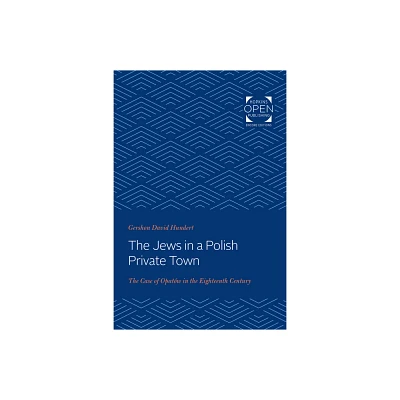Home
the Jews a Polish Private Town: Case of Opatów Eighteenth Century
Loading Inventory...
Barnes and Noble
the Jews a Polish Private Town: Case of Opatów Eighteenth Century
Current price: $47.00


Barnes and Noble
the Jews a Polish Private Town: Case of Opatów Eighteenth Century
Current price: $47.00
Loading Inventory...
Size: Paperback
*Product Information may vary - to confirm product availability, pricing, and additional information please contact Barnes and Noble
Winner of the Montreal Jewish Public Library's J. I. Segal Prize
Originally published in 1991. In the eighteenth century, more than half of the world's Jewish population lived in Polish private villages and towns owned by magnate-aristocrats. Furthermore, roughly half of Poland's entire urban population was Jewish. Thus, the study of Jews in private Polish towns is central to both Jewish history and to the history of Poland-Lithuania.
The Jews in a Polish Private Town
seeks to investigate the social, economic, and political history of Jews in Opatów, a private Polish town, in the context of an increasing power and influence of private towns at the expense of the Polish crown and gentry in the eighteenth century. Hundert recovers an important community from historical obscurity by providing a balanced perspective on the Jewish experience in the Polish Commonwealth and by describing the special dimensions of Jewish life in a private town.
Originally published in 1991. In the eighteenth century, more than half of the world's Jewish population lived in Polish private villages and towns owned by magnate-aristocrats. Furthermore, roughly half of Poland's entire urban population was Jewish. Thus, the study of Jews in private Polish towns is central to both Jewish history and to the history of Poland-Lithuania.
The Jews in a Polish Private Town
seeks to investigate the social, economic, and political history of Jews in Opatów, a private Polish town, in the context of an increasing power and influence of private towns at the expense of the Polish crown and gentry in the eighteenth century. Hundert recovers an important community from historical obscurity by providing a balanced perspective on the Jewish experience in the Polish Commonwealth and by describing the special dimensions of Jewish life in a private town.


















